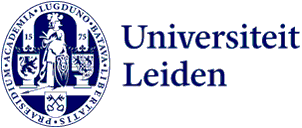
At LUC, the Hague Forest is a classroom: ‘Students develop themselves as local nature guides’
Rain or shine: in the course ‘The Ecology Project’ students of Leiden University College visit the nature of The Hague each week. A welcome break from the lecture halls but also an innovative way of learning that connects students with the community in which they live.
'The Ecology Project course is a "service learning course,"' says course founder and assistant professor of history Ann Wilson. 'This type of education combines traditional academic teaching with a project in the local community. Students connect theory to practice through regular reflection upon how what they learn in the classroom connects to what they experience in the field.’

Crash course to become a nature guide of The Hague
This 'service learning course' focuses on nature education. Students read academic literature on the subject on the one hand and receive practical lessons from IVN Natuureducatie, an organisation that lets young and old experience how fun, healthy and important nature is, on the other. Under their guidance, they are rapidly trained to become nature guides. The goal? To give nature excursions to students of the ‘Internationale Schakel Klas’ of the Johan de Wittschool at the end of the course.
Wilson: ‘These pupils are between 12 and 18 years old and have recently come to the Netherlands. They are still learning the Dutch language, and they are also learning about this new home of The Hague. The same goes for many LUC students. That’s why a lot of attention is paid to the Dutch language in ‘The Ecology Project’. Much of the IVN teaching material is completely in Dutch and species names of plants and animals are also taught in Dutch. That is why there is at least one Dutch-speaking student in each subgroup of this course, to help with translations. Students who speak languages other than Dutch and English are also invited to learn and share the names of species in their native tongues. Ours is a multilingual, multicultural, and multispecies classroom!’
Interdisciplinary and innovative curriculum
Although the course has only been running for four weeks, Wilson is already seeing students' growth, both academically and personally. ‘The course material is very broad. We read anthropological, historical, philosophical and sociological texts as well as fiction and texts from the field of education. Students themselves come from different disciplines and they share that knowledge with each other in the classes. But even more fun is that they have become much more aware of the nature around them. They really are building a relationship with their local environment.'

Interaction
Another important aspect of the course is that the students actively contribute to IVN's future programming. They provide direct feedback on the nature guide course and help think about how the IVN can make nature excursions more attractive to younger audiences. 'Let's face it, the people who tend to go on nature excursions are often retirees,' says Wilson. 'But it's also important to reach younger people as well. And it‘s fun to think about how to do so as an educator, with fellow educators from IVN, and with educators-to-be (my students).'
LUC was launched by Leiden University in 2010. Today, the college has some 600 students enrolled in its small-scale education programme, with an average of only 18 students per class. Its staff are also involved in numerous research projects and scientific collaborations, which collectively enrich their approach to teaching. Every year, LUC graduates gain places on Masters programmes at the best universities around the world, and the College’s 1700 alumni have gone on to establish themselves in a wide range of careers.
Text: Sabine Waasdorp
